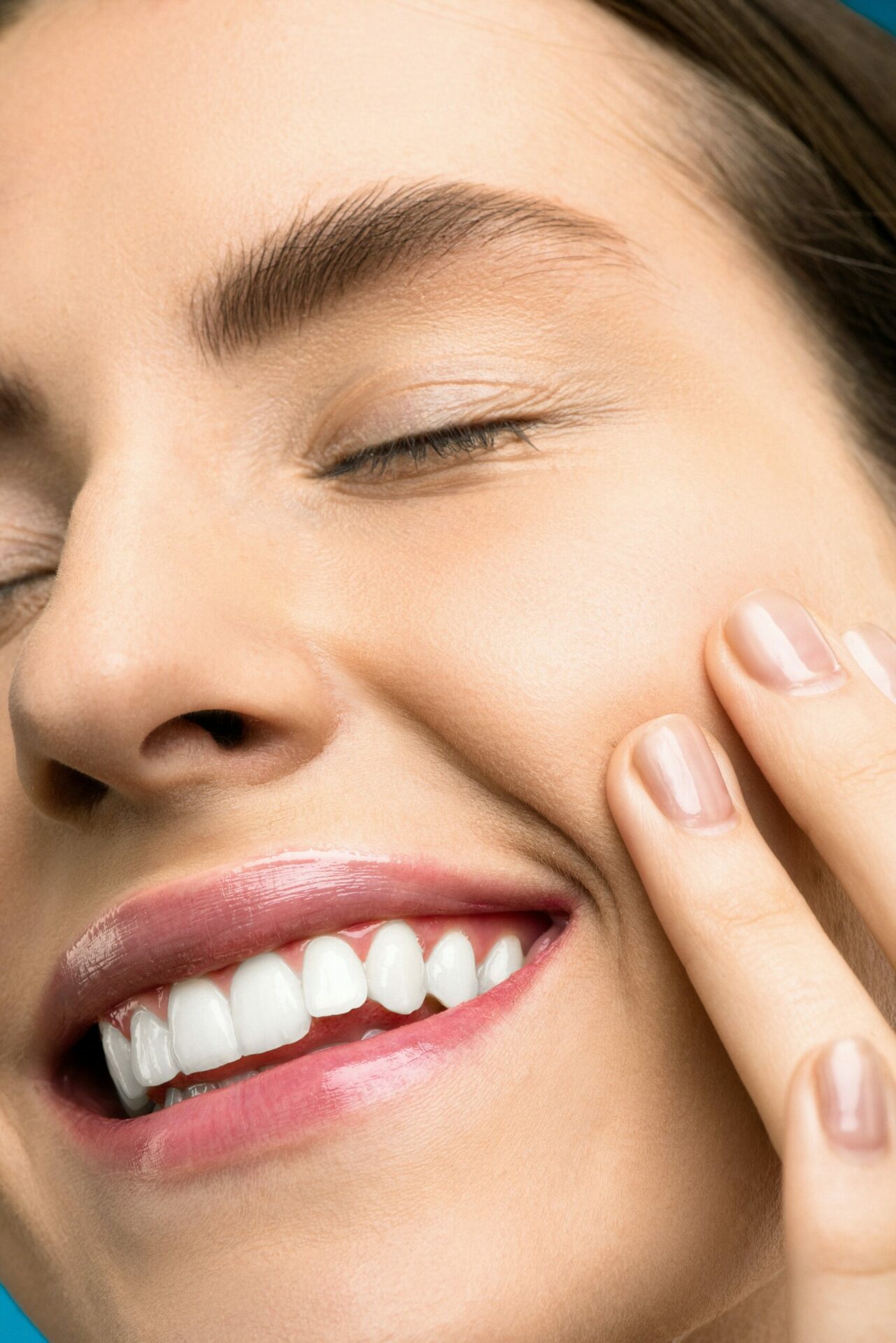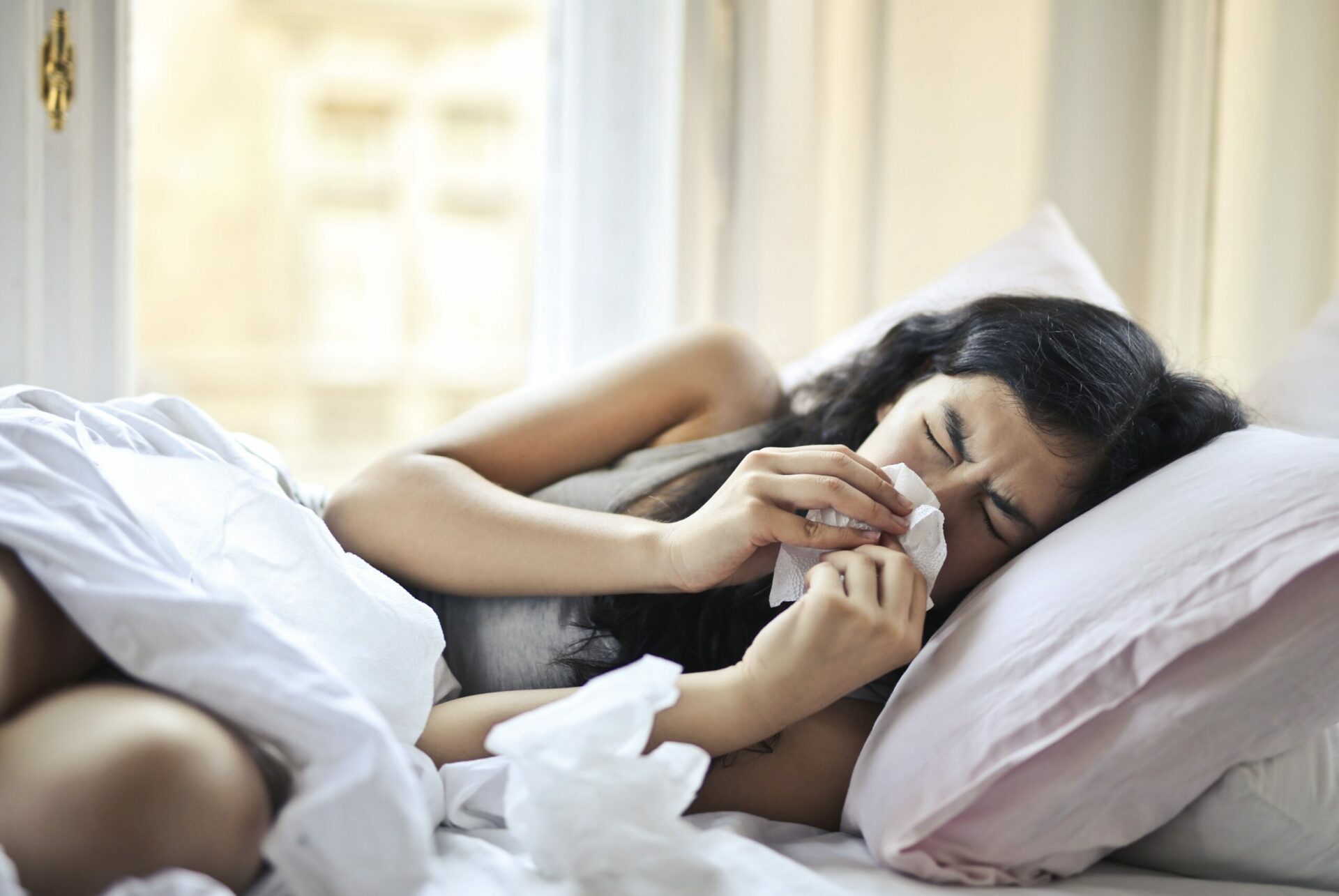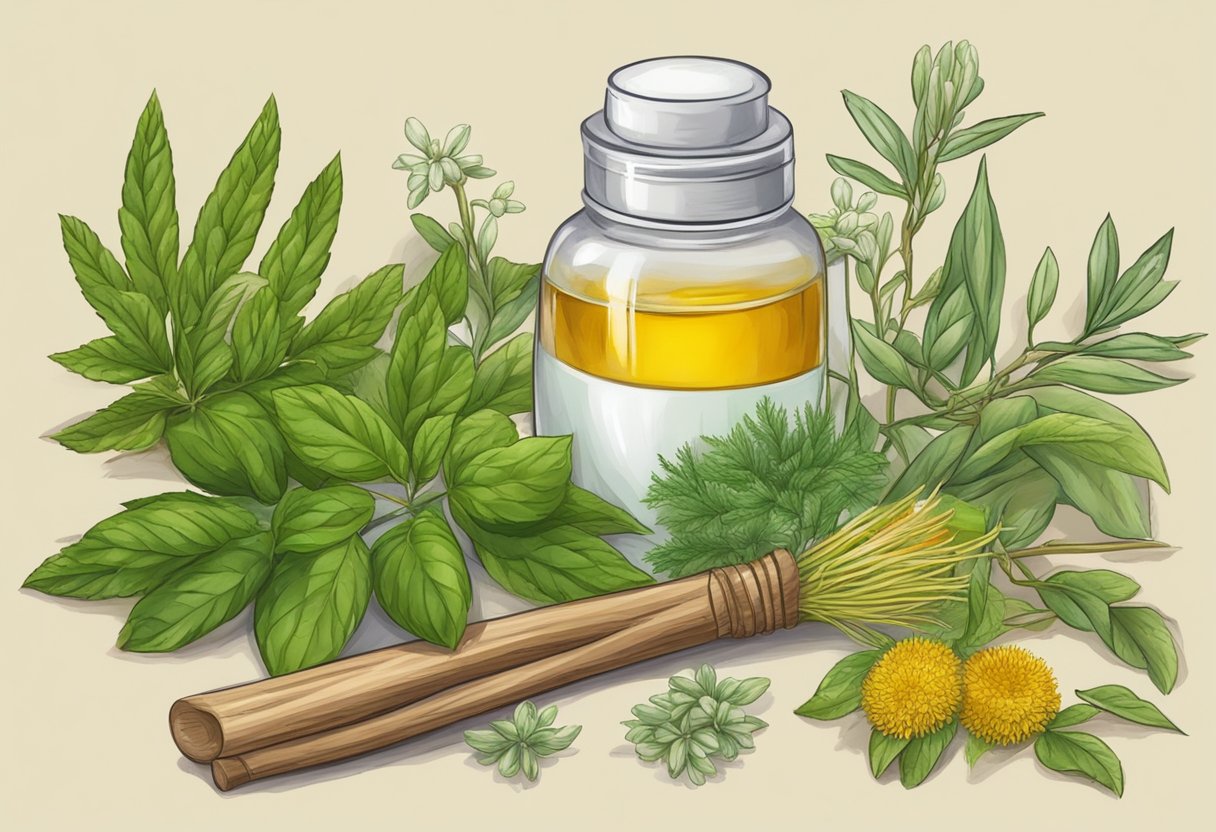Hormonal acne is a common skin condition that affects many individuals, especially during puberty and times of hormonal fluctuations. This type of acne is often caused by an imbalance of hormones such as androgens, which can lead to an overproduction of sebum and the formation of pimples, blackheads, and whiteheads. As a persistent and sometimes frustrating issue, sufferers frequently seek effective and natural ways to manage their skin condition.
Disclaimer: This article is provided for informational purposes only and should not replace professional medical advice. Please consult with a qualified healthcare practitioner or herbalist before using any herbal remedies.
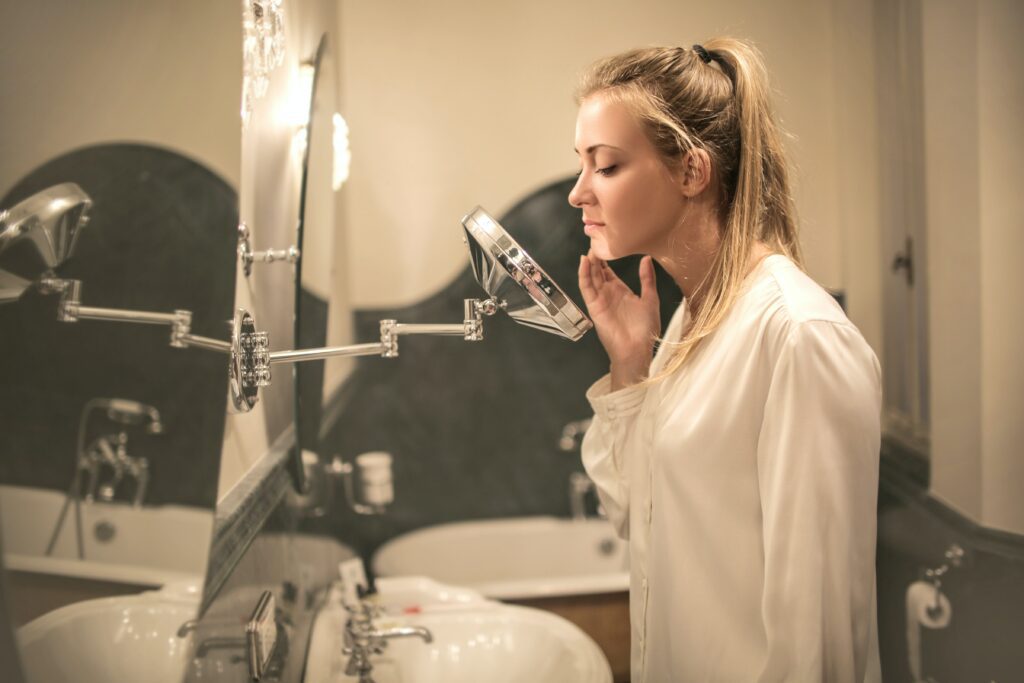
One of the promising alternatives for managing hormonal acne is the use of herbs, which have been used for centuries to treat various health issues, including skin problems like acne. Herbs for hormonal acne can target the underlying causes, rebalance hormones, and provide gentle and natural ways to treat the skin without causing further irritation. Incorporating such herbs into an overall skin care regimen, alongside adopting a healthy diet and lifestyle, could significantly improve the appearance and health of the skin.
Key Takeaways
- Hormonal acne is a common skin issue often caused by hormonal imbalances
- Herbs may provide a natural alternative to manage hormonal acne effectively
- Implementing a holistic approach, including diet and skincare routines, is essential for long-term improvement
Understanding Hormonal Acne
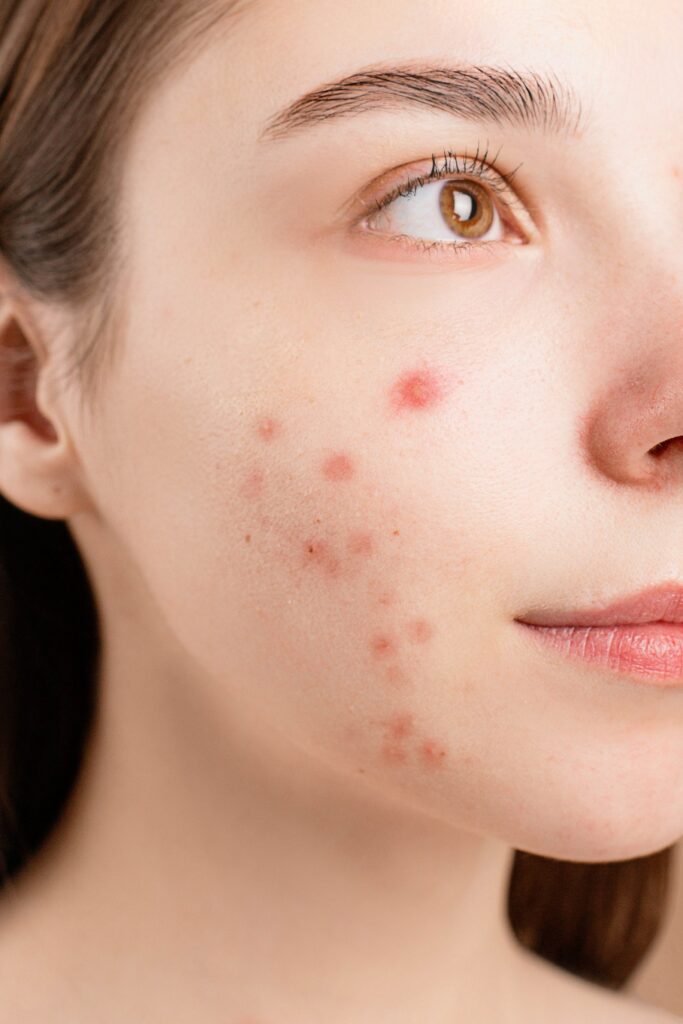
Hormonal acne, a common skin condition, is often caused by hormonal imbalances or fluctuations that affect the production of sebum, an oily substance, in the skin’s oil glands. These imbalances can result from various factors, including changes in hormone levels, cortisol levels, and insulin resistance, among others.
One of the main contributors to hormonal acne is androgen hormones, such as testosterone. When androgen levels rise, they stimulate the oil glands to produce more sebum, which can lead to clogged pores and acne breakouts. This type of acne, also known as acne vulgaris, typically appears in the form of cystic acne, characterized by large, painful, and pus-filled lesions.
Hormonal fluctuations are a natural part of the menstrual cycle. During certain phases, such as the days leading up to menstruation, hormone levels can change drastically, leading to an increase in acne breakouts. Women with polycystic ovary syndrome (PCOS) or polycystic ovarian syndrome, a condition characterized by hormonal imbalances and insulin resistance, may also experience more severe hormonal acne.
Chronic stress can also contribute to hormonal acne. When the body is under stress, it produces more cortisol, a hormone that has been linked to increased sebum production and inflammation. An excess of cortisol can exacerbate hormonal imbalances and lead to more frequent and severe acne breakouts.
Blood sugar imbalances are another potential factor in the development of hormonal acne. Consuming foods with a high glycemic index can cause rapid spikes in blood sugar levels, leading to insulin resistance and inflammation. Over time, insulin resistance can worsen hormonal imbalance and contribute to the development of acne.
In summary, hormonal acne is influenced by various factors such as androgen hormones, cortisol levels, insulin resistance, and menstrual cycle-related hormonal fluctuations. Understanding the underlying causes of hormonal acne can help individuals identify potential triggers and implement appropriate treatments or lifestyle changes to alleviate its symptoms.
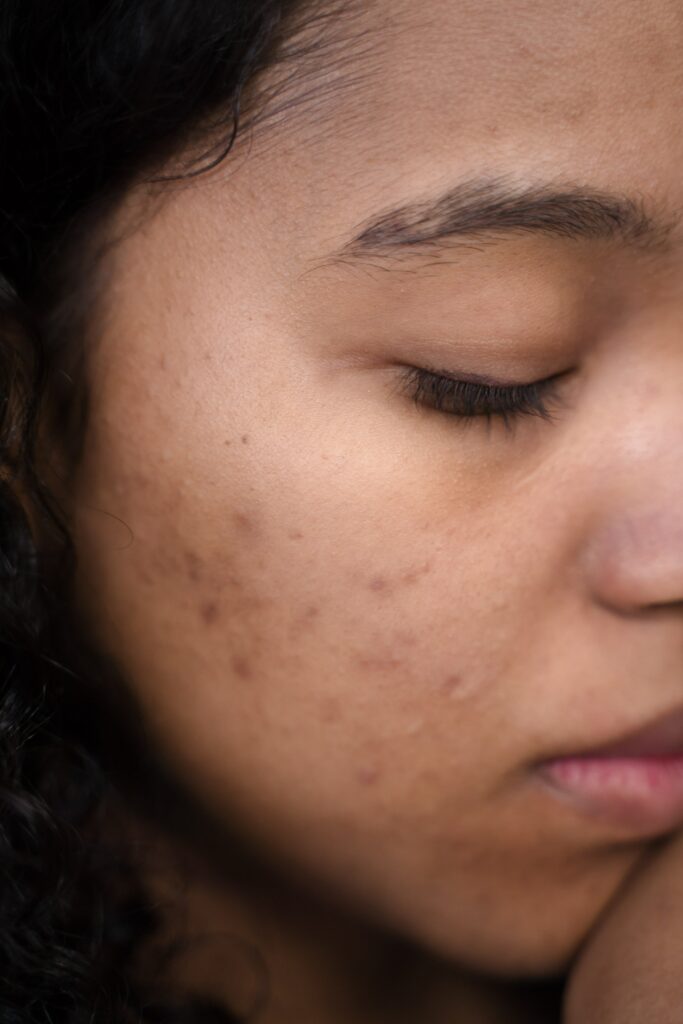
Causes of Hormonal Acne
Hormonal acne is often caused by an imbalance of hormones in the body, which can lead to an overproduction of oil (sebum) in the sebaceous glands. The major underlying cause of hormonal acne is a fluctuation in the levels of estrogen, progesterone, and male sex hormones such as testosterone. This variation can lead to an increased production of sebum by the oil glands, consequently promoting acne breakouts.
The acne-causing bacteria, Propionibacterium acnes, thrive in places with a high concentration of oil, such as hair follicles. As the sebum accumulates, it creates an environment that allows these bacteria to grow and flourish. The immune system then responds to the presence of the bacteria, leading to inflammation that manifests as the blemishes commonly associated with acne.
Aside from hormonal fluctuations, other factors affecting the severity and frequency of hormonal acne can be blood sugar levels and insulin resistance. A diet high in refined carbohydrates and sugar can spike blood sugar levels, leading to increased levels of insulin in the body. Insulin resistance has been linked to increased sebum production, which can exacerbate hormonal acne.
Medical conditions such as polycystic ovary syndrome (PCOS) and certain adrenal gland disorders may also contribute to hormonal imbalance and acne breakouts. These medical conditions can lead to an increased production of male hormones, which in turn can cause an overproduction of sebum and contribute to acne.
Various lifestyle and environmental factors may further influence the development and severity of hormonal acne. For instance, using cosmetics that are oil-based or containing pore-clogging ingredients can worsen acne breakouts. Additionally, stress is known to increase the production of cortisol and other hormones, which may also contribute to acne exacerbation.
It is worth noting that hormonal treatments, like hormonal birth control, can either help clear up hormonal acne by regulating hormone levels or worsen the condition for certain individuals depending on the type of hormonal birth control being used.
In summary, the root causes of hormonal acne include hormonal imbalances, the overproduction of oil by sebaceous glands, acne-causing bacteria, factors affecting blood sugar levels and insulin resistance, and underlying medical conditions. Understanding the complex interactions between these elements is crucial for effectively treating and managing hormonal acne.
Effects of Hormonal Acne
Hormonal acne is a type of acne caused by fluctuations in hormone levels, often resulting in skin conditions that may differ from other types of acne. Hormonal acne lesions typically appear on the face, neck, back, and chest. This type of acne can affect individuals of any age, from teenagers undergoing puberty to adults experiencing hormonal changes due to menstruation, pregnancy, or certain health conditions like polycystic ovary syndrome (PCOS).
When hormone levels fluctuate, it can lead to an increase in the production of sebum, a natural oil produced by the sebaceous glands in the skin. Excess sebum can mix with dead skin cells and clog skin pores, leading to various types of acne lesions including whiteheads, blackheads, pimples, and cysts. These clogs may provide an ideal environment for the growth of acne-causing bacteria, further contributing to the development of hormonal acne.
Skin irritation is another effect of hormonal acne. During a breakout, the skin may become inflamed, red, or tender, which can cause discomfort and self-consciousness for some individuals. People with sensitive skin may experience more intense irritation and may be more vulnerable to acne scarring, further impacting their overall skin health.
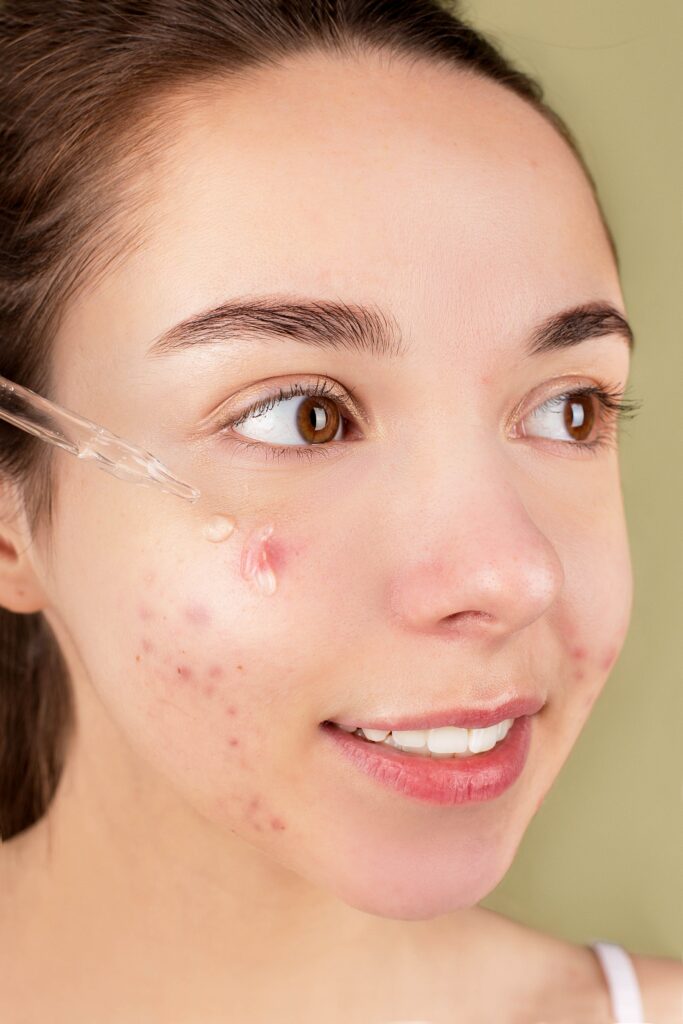
In order to minimize the effects of hormonal acne, it’s important to maintain a consistent skincare routine that supports healthy skin function. This includes using gentle cleansers, exfoliants, and moisturizers that cater specifically to the individual’s skin type. Additionally, incorporating certain herbs, such as tea tree oil, calendula, or chamomile, may help soothe inflammation and reduce the appearance of acne lesions.
Another aspect to consider in the management of hormonal acne is diet and lifestyle. Consuming a balanced diet rich in antioxidants and incorporating regular exercise into one’s routine may help regulate hormone levels and support overall skin health. It’s also crucial to avoid picking or squeezing acne lesions, which can exacerbate skin irritation, damage, and promote scarring.
By understanding the effects of hormonal acne and working proactively to manage the condition, individuals can help to reduce the severity and frequency of breakouts, ultimately leading to healthier skin.
Natural Remedies for Hormonal Acne
Hormonal acne can be a persistent problem for many people, but there are natural remedies that can help alleviate its symptoms. Using natural ingredients and making lifestyle changes can be effective ways to manage and prevent hormonal acne.
One popular natural remedy for hormonal acne is the application of tea tree oil. Renowned for its anti-inflammatory properties, tea tree oil can be applied topically to the skin to reduce inflammation and redness. Additionally, aloe vera gel is another soothing ingredient that can help relieve irritation and promote healing of acne-prone skin.
Incorporating green tea into the daily routine is another natural remedy for hormonal acne. Green tea is a powerful antioxidant that helps detoxify the skin and reduce inflammation. Drinking herbal teas like vitex agnus-castus and dandelion root can also help balance hormones, which can contribute to clearer skin.
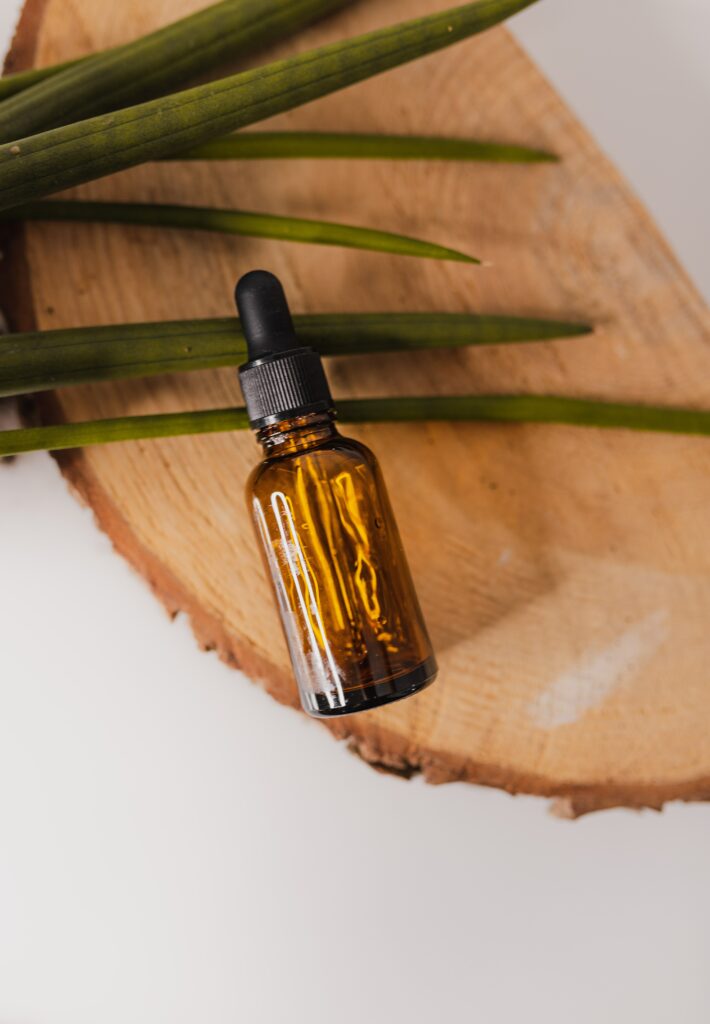
Essential oils, such as lavender and chamomile, are known to have calming effects on the skin and can help alleviate hormonal acne symptoms. These oils can be applied diluted to the affected areas or added to a warm bath for a relaxing soak.
A healthy diet rich in whole grains, sweet potatoes, and essential fatty acids can also provide the body with the nutrients it needs to maintain balanced hormones. Incorporating anti-inflammatory foods like green vegetables can help further reduce inflammation and prevent acne breakouts.
Natural supplements can also play a role in managing hormonal acne. Vitex agnus-castus, for example, is a popular herbal supplement that can help regulate hormonal balance and potentially alleviate hormonal acne symptoms. However, always consult a healthcare professional before incorporating new supplements into your routine.
In addition to natural remedies, several over-the-counter treatments can help manage hormonal acne. Ingredients like benzoyl peroxide and salicylic acid can effectively target acne-causing bacteria and unclog pores, respectively. They can be used in combination with natural remedies for a comprehensive approach to treating hormonal acne.
In conclusion, tackling hormonal acne from multiple angles with natural remedies, supplements, and lifestyle changes can lead to clearer, healthier skin. It’s essential to remain consistent with the chosen remedies and pay attention to how the skin responds, allowing for adjustments as necessary.
Role of Diet in Hormonal Acne
A well-rounded diet plays a crucial role in maintaining healthy skin and preventing hormonal acne. Incorporating whole grains, fresh vegetables, and essential fatty acids can support hormonal balance and skin health1. Among the nutritious options to consider are sweet potatoes, which are rich in vitamins A and C, as well as beta-carotene, promoting skin cell production and reducing inflammation2.

Antioxidants found in numerous fruits and vegetables protect the skin from damage caused by free radicals. Research indicates that antioxidant-rich foods may help prevent the inflammation and oxidative stress that are linked to acne development3. Vitamins A, C, and E are all powerful antioxidants that may help reduce acne symptoms. Additionally, vitamin B can help regulate hormone production and reduce skin inflammation4.
Conversely, a diet high in junk food and dairy products may exacerbate hormonal acne. Consuming excessive amounts of sugar, refined carbohydrates, and dairy may lead to insulin resistance, which can contribute to hormonal imbalances and may trigger acne breakouts5. Reducing these types of foods can potentially help manage hormonal acne and improve overall skin health.
When trying to combat hormonal acne, remember that no single diet change will work for everyone. However, the following general recommendations may provide additional support in keeping the skin clear and healthy:
- Prioritize fruits, vegetables, legumes, and whole grains, which can provide essential nutrients and antioxidants.
- Try to limit the intake of dairy products, processed foods, and sugar, as they can contribute to inflammation and insulin resistance.
- Incorporate natural sources of vitamins A, B, C, and E into your diet for their antioxidant and hormone-regulating properties.
Maintaining a wholesome and balanced diet can play a significant role in managing hormonal acne. By focusing on nutrient-rich foods and limiting potential triggers, it is possible to support hormonal balance and promote clear, healthy skin.
Footnotes
- https://plantedwithkatie.com/herbs-for-hormonal-acne/ ↩
- https://www.healthline.com/nutrition/sweet-potato-benefits ↩
- https://www.healthline.com/health/beauty-skin-care/hormonal-acne ↩
- https://www.medicalnewstoday.com/articles/b-vitamin-and-acne ↩
- https://www.healthline.com/nutrition/hormonal-acne-diet ↩
Supplements and Topical Treatments for Hormonal Acne
Hormonal acne can be a challenging skin condition to treat, but there are many natural ingredients and supplements available to alleviate symptoms. Combining topical treatments with dietary supplements can help manage hormonal acne more effectively.

Topical treatments play an essential role in treating hormonal acne. Among the most popular and effective are benzoyl peroxide and salicylic acid. Benzoyl peroxide kills acne-causing bacteria and reduces inflammation, whereas salicylic acid helps to unclog pores by gently exfoliating the skin surface. These ingredients can be found in numerous over-the-counter products like cleansers, gels, and creams.
Essential oils are another popular option for addressing hormonal acne due to their natural and soothing properties. To benefit from essential oils, you need to choose the right carrier oil that can dilute the concentrated substances and prevent potential skin reactions. Some common carrier oils include jojoba oil, grapeseed oil, and sweet almond oil. Once you have your carrier oil, you can blend it with acne-fighting essential oils like tea tree oil or lavender oil. Tea tree oil has antibacterial and anti-inflammatory properties, making it ideal for treating acne-prone skin. Lavender oil can soothe the skin and reduce redness, preventing further irritation.
Aloe vera gel is a versatile natural ingredient that can be used as a standalone treatment or combined with essential oils for added benefits. Aloe vera gel heals skin wounds, reduces inflammation and irritation, and keeps the skin hydrated.
Moreover, incorporating dietary supplements can support the effectiveness of topical treatments. Supplements like DIM (diindolylmethane), derived from cruciferous vegetables, can help balance hormones and improve hormonal acne. Other supplements like zinc, omega-3, and vitamin D can boost overall skin health and strengthen the immune system, preventing the formation of new acne lesions.
In summary, combining various supplements and topical treatments with natural ingredients can effectively manage hormonal acne. It is important to consult with a healthcare professional before incorporating any new treatments into your skincare routine, as some ingredients may cause adverse reactions or interact with existing medications.
Importance of Skincare Routine
A well-rounded skincare routine is essential for individuals dealing with hormonal acne. Maintaining a consistent regimen not only promotes clear skin but also supports the healing process of existing blemishes. By following a few essential steps, individuals can achieve the best results in managing their hormonal acne.
Cleansing the face twice daily is the first and most crucial step in any skincare routine. Using a gentle cleanser helps remove dirt, oil, and makeup residue that can contribute to acne formation. Those suffering from hormonal acne should opt for a cleanser containing specific ingredients, such as salicylic acid or benzoyl peroxide, which helps unclog pores and reduce inflammation.
After cleansing, it is essential to apply a toner to help balance the skin’s pH levels and soothe inflammation. Toners formulated with natural ingredients like witch hazel, aloe vera, or chamomile can be especially beneficial for hormonal acne-prone skin. These ingredients provide additional healing benefits and reduce the redness associated with breakouts.
Exfoliation is another essential component of a skincare routine for hormonal acne. Gently exfoliating the skin once or twice a week can help remove dead skin cells and unclog pores. Chemical exfoliants, such as alpha-hydroxy acids (AHAs) or beta-hydroxy acids (BHAs), are preferred over physical exfoliants as they tend to be less irritating for acne-prone skin.

Ensuring adequate hydration is also crucial in managing hormonal acne. Applying a lightweight, non-comedogenic moisturizer after cleansing and toning helps restore the skin’s natural moisture barrier. This step is vital to prevent excessive oil production and maintain the skin’s overall health.
Lastly, incorporating treatments specifically targeting hormonal acne into the skincare routine can dramatically improve results. Topical treatments containing ingredients like retinoids or tea tree oil can effectively treat existing blemishes and prevent future breakouts. For more severe cases, consulting with a dermatologist for prescription-strength options may be necessary.
In conclusion, a consistent skincare routine plays a vital role in managing hormonal acne. By adhering to essential steps like cleansing, toning, exfoliating, moisturizing, and incorporating targeted treatments, individuals can effectively promote clear skin and support their skin’s natural healing process.
Holistic approach to Hormonal Acne
When it comes to treating hormonal acne, a holistic approach that addresses the root causes of the condition is often the most effective method. This method not only targets the symptoms of acne, but also focuses on improving overall health and well-being. In fact, many holistic estheticians believe that the key to clear skin lies in achieving hormonal balance and optimizing the gut microbiome.
The good news is that there are numerous natural remedies and lifestyle changes that can help treat hormonal acne. For instance, incorporating herbs such as red clover into your daily routine can play an important role in restoring hormonal balance. Red clover is thought to have natural estrogen-like properties that can help regulate hormone levels and alleviate acne symptoms.
In addition to using red clover, it is crucial to address the gut microbiome, which plays a significant role in hormonal balance. By nourishing and supporting the gut with a healthy diet, individuals can promote a healthy microbiome and, in turn, improve hormonal balance. This may involve consuming more fiber-rich fruits and vegetables, fermented foods, and limiting processed or sugar-laden foods.
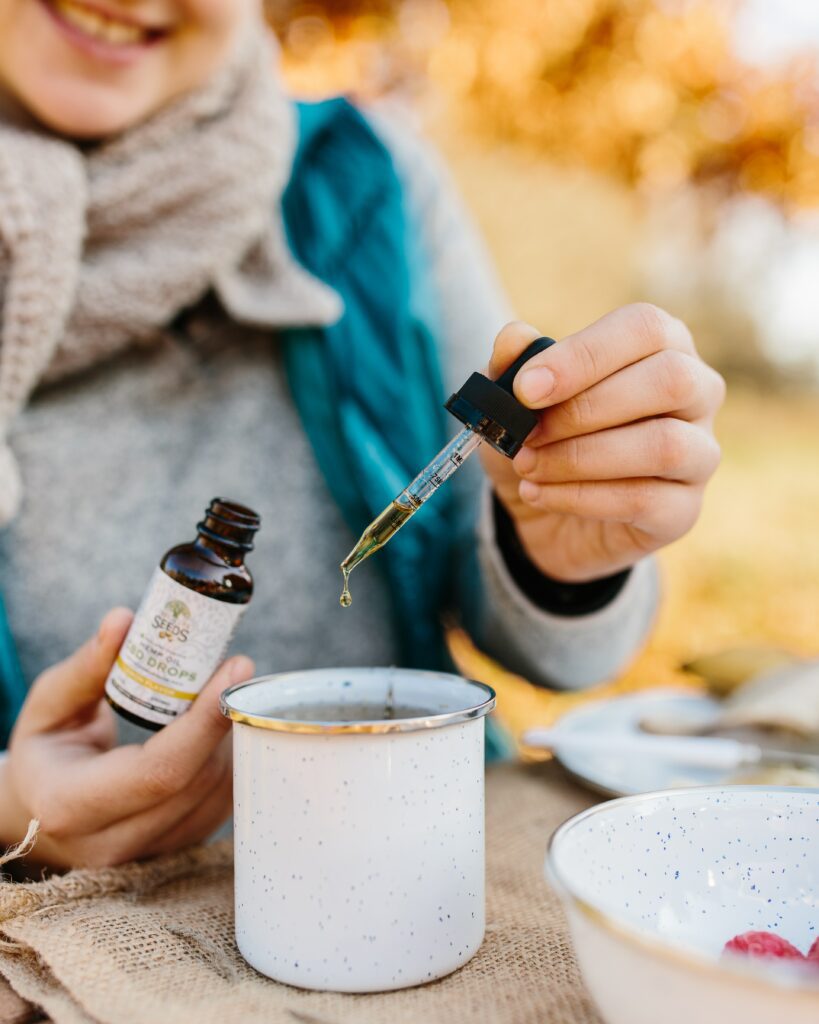
Moreover, adopting a more active lifestyle can help reduce stress and promote hormonal balance. Regular exercise, such as yoga or walking, can help lower cortisol levels, a hormone that is often linked to acne breakouts. Furthermore, incorporating stress-reduction techniques, like meditation or deep breathing exercises, into daily routines can also have a positive impact on overall health and hormonal balance.
Finally, keeping skin clean and well-hydrated is essential in the fight against hormonal acne. Opt for gentle, natural cleansers that will not strip the skin of essential oils, allowing the skin’s natural barrier function to remain intact. Additionally, providing your skin with sufficient moisture through the use of a water-based moisturizer will aid in maintaining hydration levels and ensuring a healthy skin environment.
In summary, a holistic approach to treating hormonal acne requires a multifaceted approach that promotes overall health and takes into consideration the important role of hormones and the gut microbiome. By incorporating these elements into a comprehensive treatment plan, sufferers of hormonal acne can be well on their way to achieving healthier skin.
Conclusion
In the journey to find an effective acne treatment, integrating herbs into one’s regimen can offer a natural way to address hormonal acne. By incorporating herbal remedies and supplements, individuals can potentially mitigate skin inflammation without the unwanted side effects associated with some synthetic medications. However, it is essential to remember that these natural remedies are only a component of a holistic approach to managing hormonal acne.
Making lifestyle changes is a fundamental first step in tackling hormonal acne. By ensuring a balanced diet, regular exercise, and adequate sleep, an individual can improve their overall health and, consequently, their hormonal balance. Additionally, implementing a gentle skincare routine that includes thorough cleansing, exfoliation, and moisturizing can further enhance skin health. Combining these practices with herbal remedies can provide additional support, leading to optimal results in treating hormonal acne.
One must keep in mind that each person’s body and hormonal makeup is unique; thus, what works for one person may not necessarily be effective for others. It may take some experimentation to find the best combination of herbs and lifestyle changes to yield the desired results in managing hormonal acne. Consulting with a healthcare professional or a certified herbalist is recommended before introducing any new treatments or remedies to ensure their safety and effectiveness.
In conclusion, using herbs for hormonal acne may provide a natural and effective avenue for managing this skin condition. Combining these remedies with healthy lifestyle practices and an appropriate skincare routine offers a comprehensive plan to address hormonal acne. By staying informed and working closely with healthcare professionals, individuals can increase their chances of finding the right combination of treatments to achieve clear and healthy skin.
Frequently Asked Questions
What natural remedies help with hormonal acne?
There are various natural remedies that may help with hormonal acne. One option is to apply tea tree oil, which has anti-inflammatory and antibacterial properties. Another potential remedy is green tea, known for its antioxidant and anti-inflammatory effects. Drinking green tea or applying it topically can help reduce inflammation and sebum production.
Which supplements can balance hormones for female acne?
Supplements like evening primrose oil, zinc, vitamin A, and fish oil may help balance hormones and reduce female acne. Evening primrose oil contains essential fatty acids that may help regulate hormone levels, while zinc and vitamin A support skin health. Fish oil, containing omega-3 fatty acids, can also help reduce inflammation and promote hormonal balance.
How to address hormonal acne through diet?
A diet high in plant-based foods, antioxidants, and omega-3 fatty acids may help prevent hormonal acne by reducing inflammation and promoting clearer skin. Consuming foods such as leafy greens, berries, nuts, seeds, and fatty fish can contribute to a healthier gut and skin. Additionally, avoiding excess sugar and processed foods may help minimize acne outbreaks.
What are some effective herbal treatments for hormonal acne?
Herbal treatments like neem, berberine, and Vitex agnus-castus can be effective for hormonal acne. Neem has antibacterial properties that help combat acne-causing bacteria. Berberine, a compound found in plants like goldenseal, may help regulate hormones and reduce inflammation. Vitex agnus-castus, also known as chasteberry, can help balance hormone levels in women.
How can hormonal acne be treated internally?
Treating hormonal acne internally involves addressing the root cause of imbalanced hormones. This can be done by focusing on gut health, as a healthy gut is vital for healthy hormone balance. Consuming probiotics, prebiotics, and fiber-rich foods can support gut health and promote the elimination of excess hormones. Additionally, managing stress and ensuring adequate sleep can also help regulate hormone levels.
Can a naturopathic approach improve hormonal acne?
A naturopathic approach, which focuses on treating the root causes of acne rather than just the symptoms, can potentially improve hormonal acne. This approach may involve using herbs, supplements, and dietary changes to balance hormones and reduce inflammation. Working with a naturopathic practitioner can help individuals identify the specific factors contributing to their acne and develop a personalized treatment plan.

